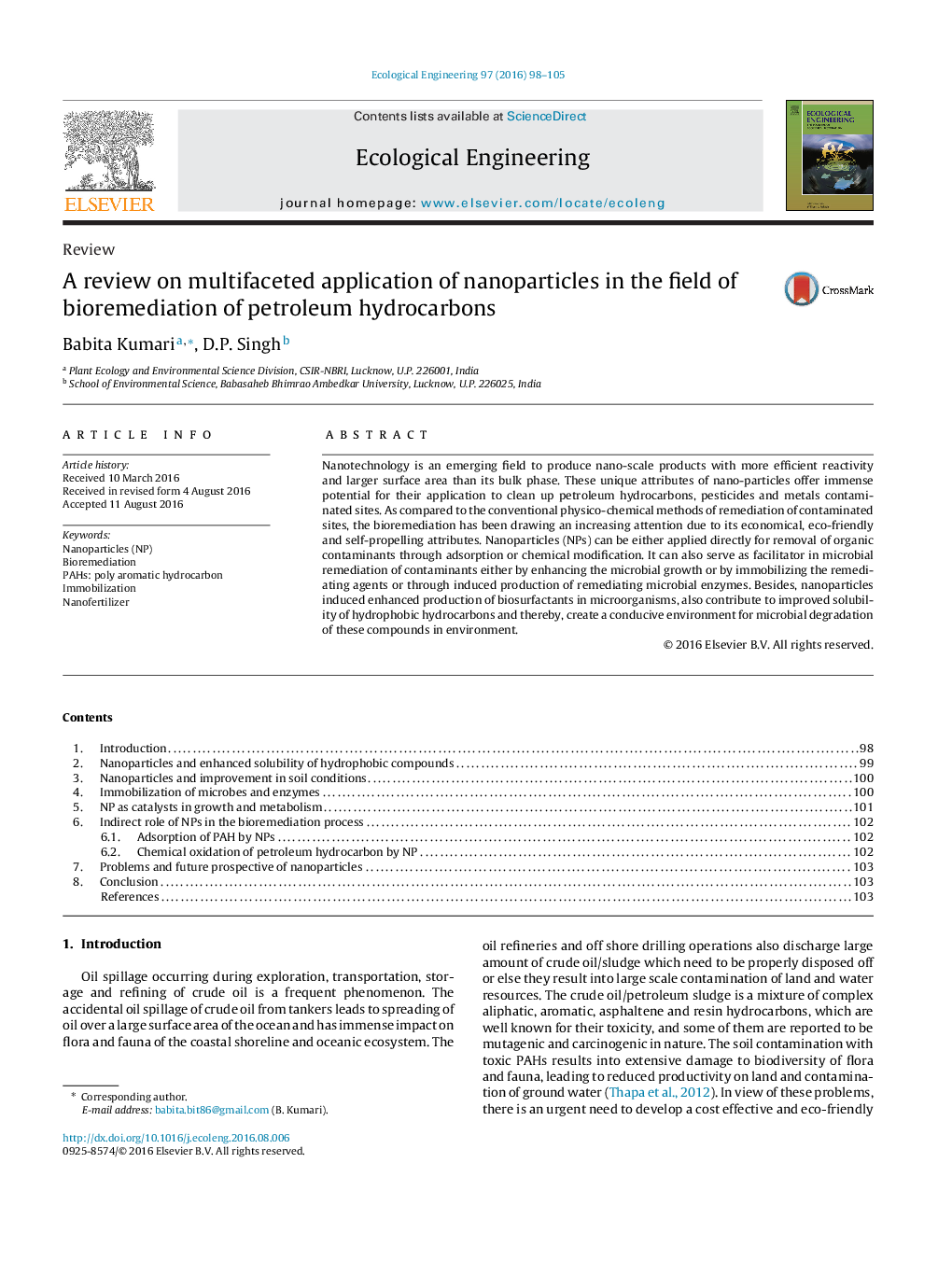| Article ID | Journal | Published Year | Pages | File Type |
|---|---|---|---|---|
| 4388370 | Ecological Engineering | 2016 | 8 Pages |
Nanotechnology is an emerging field to produce nano-scale products with more efficient reactivity and larger surface area than its bulk phase. These unique attributes of nano-particles offer immense potential for their application to clean up petroleum hydrocarbons, pesticides and metals contaminated sites. As compared to the conventional physico-chemical methods of remediation of contaminated sites, the bioremediation has been drawing an increasing attention due to its economical, eco-friendly and self-propelling attributes. Nanoparticles (NPs) can be either applied directly for removal of organic contaminants through adsorption or chemical modification. It can also serve as facilitator in microbial remediation of contaminants either by enhancing the microbial growth or by immobilizing the remediating agents or through induced production of remediating microbial enzymes. Besides, nanoparticles induced enhanced production of biosurfactants in microorganisms, also contribute to improved solubility of hydrophobic hydrocarbons and thereby, create a conducive environment for microbial degradation of these compounds in environment.
Graphical abstractFigure optionsDownload full-size imageDownload as PowerPoint slide
